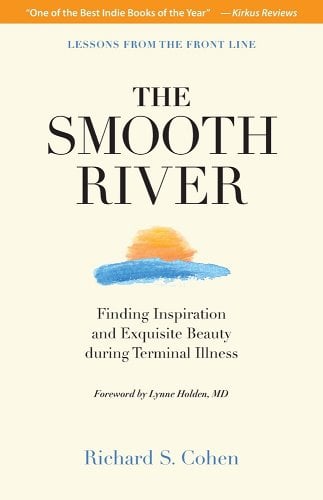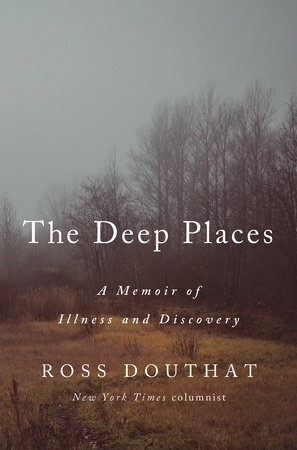End-of-life doulas provide a new type of caregiving to patients and families.
YOU MIGHT ALSO LIKE
CLEAR ALL
BY TOPIC
BY TEACHER
BY TYPE
FILTER

TOPIC
- Romantic Relationships (61)
- Friendship (48)
- Grief (46)
- Living with Illness (43)
- Communication Skills (36)
- Death-Positive Movement (34)
- Hospice (34)
- Finding Meaning (32)
- Illness and Injury (31)
- Death or Loss of a Loved One (29)
- Depression (29)
- Anxiety (24)
- Afterlife (22)
- Anger (22)
- Handling a Loved One’s Illness (22)
- Marriage (22)
- Neurodiversity (22)
- Resilience (20)
- Fatigue (19)
- Fear (19)
- Endurance (18)
- Memoir (18)
- Emotional and Mental Health (17)
- Fellowship and Community (17)
- Intimacy (16)
- Caregiver Well-Being (15)
- Compassion (15)
- Decision Making (15)
- Near-Death Experience (15)
- Buddhism (14)
- Self-Care (14)
- Women’s Well-Being (14)
- Autism (13)
- Divorce and Breakup (13)
- Identity (13)
- Work Challenges (13)
- Gratitude (12)
- Grit (12)
- Mind-Body Connection (12)
- Stress Management (12)
- Trauma Healing (12)
- ADD/ADHD (11)
- Chronic Pain (11)
- Death or Loss of a Child (10)
- Managing Energy (10)
- Self-Healing (10)
- Stress (10)
- Traumatic Grief (10)
- Acceptance (9)
- Death or Loss of a Parent (9)
- Diet and Nutrition (9)
- Mindfulness (9)
- Presence (9)
- Vulnerability (9)
- Work Relationships (9)
- Athlete Well-Being (8)
- Empathy (8)
- Loss of Partner/Spouse (8)
- Parenting (8)
- Positive Thinking (8)
- Veteran Well-Being (8)
- Awareness (7)
- Body Image (7)
- Exercise (7)
- Family Dynamics (7)
- Forgiveness (7)
- Hope (7)
- Integrative Medicine (7)
- Love (7)
- Self-Acceptance (7)
- Self-Love (7)
- Self-Reflection Practices (7)
- Speaking Your Truth (7)
- Sudden Weight Change (7)
- Toxic Relationships (7)
- Trauma (7)
- Withholding (7)
- Accepting Love (6)
- Activism/Service (6)
- Aging (6)
- Authenticity (6)
- Belonging (6)
- Growth Mindset (6)
- Insomnia (6)
- Intuition (6)
- Men’s Well-Being (6)
- Neuroscience (6)
- Passive-Aggressive Behavior (6)
- Past Lives and Reincarnation (6)
- Rebirth (6)
- Self-Discovery (6)
- Suffering (6)
- Suicide (6)
- Tibetan Buddhism (6)
- Well-Being (6)
- Chronic Health Conditions (5)
- Compassion Fatigue (5)
- Connection (5)
- Consciousness (5)
- Courage (5)
- Guilt (5)
- Healthy Eating (5)
- Imagination and Creativity (5)
- Letting Go (5)
- Loss of Appetite (5)
- Perception (5)
- Physical Health (5)
- Search for Purpose (5)
- Self-Development (5)
- Self-Esteem (5)
- Self-Expression (5)
- Self-Reliance (5)
- Setting Limits and Boundaries (5)
- Situational Depression (5)
- Spiritual Growth (5)
- Spiritual Healing (5)
- Trust (5)
- Addiction (4)
- Asking for Help (4)
- Astral Projection (4)
- Disconnection (4)
- Faith (4)
- Female Friendship (4)
- Immortality (4)
- Intention (4)
- Joy (4)
- Meditation (4)
- Narcissism (4)
- New Relationships (4)
- Psychology and Spirituality (4)
- Self-Worth (4)
- Sex (4)
- The Feldenkrais Method (4)
- Transformation (4)
- Transitions (4)
- Values (4)
- Work-Life Balance (4)
- Autoimmune Disease (3)
- Betrayal (3)
- Community Healing (3)
- Conflict Resolution (3)
- Dementia (3)
- Dysfunctional Childhood (3)
- Ego Dissolution (3)
- Emotional Intelligence (EQ) (3)
- God (3)
- Goddess (3)
- Happiness (3)
- Healing Approaches (3)
- Identity Shifts (3)
- Inner Peace (3)
- Karma (3)
- Leadership (3)
- LGBTQIA Relationships (3)
- Loneliness (3)
- Lovingkindness (3)
- Mindfulness Practices (3)
- Motherhood (3)
- Movement Meditation (3)
- Nutritional Medicine (3)
- Oneness (3)
- Personal Development (3)
- Science and Spirituality (3)
- Self-Compassion (3)
- Self-Limiting Beliefs (3)
- Self-Reckoning (3)
- Spiritual Life (3)
- Yoga (3)
- Zen Buddhism (3)
- Adaptability (2)
- Attachment Theory (2)
- BIPOC Well-Being (2)
- Brain Health (2)
- Breathwork (2)
- Cognitive Behavioral Therapy (2)
- Collaboration (2)
- Confidence (2)
- Cross-Cultural Dynamics (2)
- Death or Loss of a Sibling (2)
- Disabled Well-Being (2)
- Empowerment (2)
- Enneagram (2)
- Epigenetics (2)
- Focus (2)
- Grace (2)
- Highly Sensitive People (2)
- Holism (2)
- Honoring Emotion (2)
- Inner Life (2)
- Judaism (2)
- Jungian Analysis (2)
- Kindness (2)
- LGBTQIA Sexuality (2)
- Life Challenges (2)
- Life Force Energy (2)
- Life-Altering Injury (2)
- Male Friendship (2)
- Massage (2)
- Mentoring (2)
- Moral Philosophy (2)
- Nonviolence (2)
- Philosophical Approaches (2)
- Poetry (2)
- Psychology (2)
- PTSD (2)
- Regret (2)
- Relationship with Time (2)
- Self-Control (2)
- Self-Realization (2)
- Shame (2)
- Social Anxiety (2)
- Social Justice (2)
- Soul Mission (2)
- Spiritual Awakening (2)
- Spiritual Development (2)
- Spirituality and Health (2)
- Talk Therapy (2)
- Unfulfilled Career (2)
- Visions and Hallucinations (2)
- War (2)
- Wholeness (2)
- Abandonment (1)
- Access to Education (1)
- Addiction Recovery (1)
- Anger Management (1)
- Black Well-Being (1)
- Body Positivity (1)
- Bodywork (1)
- Buddha Nature (1)
- Building Character (1)
- Chakras (1)
- Challenges with Teens (1)
- Channeling (1)
- Child’s Anxiety (1)
- Child’s Emotional Growth (1)
- Child’s Trauma (1)
- Chronic Anxiety (1)
- Chronic Fatigue (1)
- Clairvoyance and Precognition (1)
- Codependency (1)
- Collective Trauma (1)
- Connection with Nature (1)
- Criticism and Rejection (1)
- Curiosity (1)
- Dark Night of the Soul (1)
- Dharma (1)
- DMT (1)
- Domestic Abuse (1)
- Dreamwork (1)
- Drug Addiction (1)
- Ego (1)
- Emotional Labor (1)
- Energy Balancing (1)
- Energy Healing (1)
- Energy Healing for Animals (1)
- Failure (1)
- Family Acceptance (1)
- Female Empowerment (1)
- Feminism (1)
- Freedom (1)
- Gender Challenges (1)
- Genetics (1)
- Guided Meditation (1)
- Habit Formation (1)
- Habits of Mind (1)
- Handling a Child’s Illness (1)
- Herbal Supplementation (1)
- Hero’s Journey (1)
- Holotropic Breathwork (1)
- Honoring Ancestors (1)
- Household Labor (1)
- Human Potential (1)
- Humanitarian Aid/Relief Work (1)
- Indigenous Well-Being (1)
- Infidelity (1)
- Inflammation (1)
- Inner Strengths (1)
- Inspiration (1)
- Interdependence (1)
- Journaling (1)
- Kids and Sports (1)
- LGBTQIA Well-Being (1)
- Lifestyle Medicine (1)
- Longevity (1)
- Loss of an Animal Companion (1)
- Love Languages (1)
- Lovingkindness Meditation (1)
- Masculine/Feminine Dynamics (1)
- Midlife Crisis (1)
- Mindfulness Meditation (1)
- Motivation (1)
- Native American Beliefs (1)
- Neopaganism (1)
- Neuroplasticity (1)
- Optimism (1)
- Othering (1)
- Past Life Regression (1)
- Patience (1)
- Peak Performance (1)
- Postpartum Depression (1)
- Poverty/Economic Inequality (1)
- Prayer (1)
- Psilocybin (1)
- Psychedelic Journey (1)
- Psychedelic-Assisted Therapy (1)
- Psychic Abilities (1)
- Psychoanalysis (1)
- Quantum Physics (1)
- Quitting Your Job (1)
- Racial Healing (1)
- Racial Justice (1)
- Racism (1)
- Raising Daughters (1)
- Relationship with Money (1)
- Retirement (1)
- Ritual (1)
- Self-Actualization (1)
- Sexual Health (1)
- Shadow (1)
- Shamanism (1)
- Shared-Death Experience (1)
- Sleep (1)
- Sleep Disorders (1)
- Social Responsibility (1)
- Spiritual Direction (1)
- Spiritual Quest (1)
- Storytelling (1)
- Superfoods (1)
- T’ai Chi (1)
- Telepathy (1)
- The Divine (1)
- Transgender Well-Being (1)
- Transpersonal Psychology (1)
- Wake-Up Calls (1)
- Weight Concerns (1)
- Work Ethic (1)
- Young Adult Well-Being (1)
- Youth Activism (1)
- Zen Meditation (1)
FILTER

TEACHER
- Esther Perel (5)
- Martin Luther King Jr. (5)
- Stephen Levine (5)
- Thich Nhat Hanh (5)
- BJ Miller (4)
- Elizabeth Lesser (4)
- Frank Ostaseski (4)
- Gary Chapman (4)
- Julie Schwartz Gottman (4)
- Eckhart Tolle (3)
- Jeff Foster (3)
- Joan Halifax (3)
- Mitch Albom (3)
- Neale Donald Walsch (3)
- Nikki Mirghafori (3)
- Ondrea Levine (3)
- Ram Dass (3)
- Ramani Durvasula (3)
- Stanislav Grof (3)
- William Bloom (3)
- Brendon Burchard (2)
- Cynthia Bourgeault (2)
- Elaine Aron (2)
- Gay Hendricks (2)
- Harville Hendrix (2)
- Helen LaKelly Hunt (2)
- Jane E. Brody (2)
- Jean Shinoda Bolen (2)
- John Bradshaw (2)
- John Gottman (2)
- Kris Carr (2)
- Lori Gottlieb (2)
- Marie Forleo (2)
- Mark Nepo (2)
- Maya Angelou (2)
- Megan Devine (2)
- Oliver Sacks (2)
- Oprah Winfrey (2)
- Raymond Moody (2)
- Russell Brand (2)
- Sam Harris (2)
- Sharon Strand Ellison (2)
- Tara Brach (2)
- Terri Cole (2)
- Yongey Mingyur Rinpoche (2)
- Zalman Schachter-Shalomi (2)
- Amit Goswami (1)
- Andrew Holecek (1)
- Andrew Weil (1)
- Anita Moorjani (1)
- Anne Lamott (1)
- Aristotle (1)
- Audre Lorde (1)
- Bernie S. Siegel (1)
- Brené Brown (1)
- Buddha (1)
- Caroline Myss (1)
- Chan Khong (1)
- Chögyam Trungpa (1)
- Colleen Saidman Yee (1)
- Cyndi Dale (1)
- Daniel Amen (1)
- David J. Wolpe (1)
- David Spiegel (1)
- Deena Metzger (1)
- Deepak Chopra (1)
- Diane Stein (1)
- don Miguel Ruiz (1)
- Donna Jackson Nakazawa (1)
- Dorothy Firman (1)
- Edward Hallowell (1)
- Elizabeth Gilbert (1)
- Gabor Maté (1)
- Gangaji (1)
- Gary Zukav (1)
- Huston Smith (1)
- Iyanla Vanzant (1)
- J. Krishnamurti (1)
- Jack Canfield (1)
- Jeffrey Mishlove (1)
- John O’Donohue (1)
- John Welwood (1)
- Karen Casey (1)
- Kate Johnson (1)
- Kathleen Dowling Singh (1)
- Kathlyn Hendricks (1)
- Ken Wilber (1)
- Kenneth Pelletier (1)
- Kim Eng (1)
- Leonard Orr (1)
- Lissa Rankin (1)
- Louise Hay (1)
- Marion Woodman (1)
- Mark Hyman (1)
- Mark Victor Hansen (1)
- Matthieu Ricard (1)
- Mel Robbins (1)
- Melanie Joy (1)
- Michio Kaku (1)
- Mirabai Bush (1)
- Natalie Goldberg (1)
- Parker J. Palmer (1)
- Pope Benedict XVI (1)
- Rachel Naomi Remen (1)
- Ralph Metzner (1)
- Rick Hanson (1)
- Rob Bell (1)
- Rumi (1)
- Russ Hudson (1)
- Sandy Boucher (1)
- SARK (1)
- Shefali Tsabary (1)
- Simon Sinek (1)
- Stan Tatkin (1)
- Starhawk (1)
- Stephen Cope (1)
- Stephen Covey (1)
- Terry Real (1)
- The Dalai Lama (1)
- Thomas Moore (1)
- Thubten Chodron (1)
- Tony Gaskins Jr. (1)
- Valarie Kaur (1)
- William Bengston (1)
- Zainab Salbi (1)
- Zinovia Dushkova (1)










